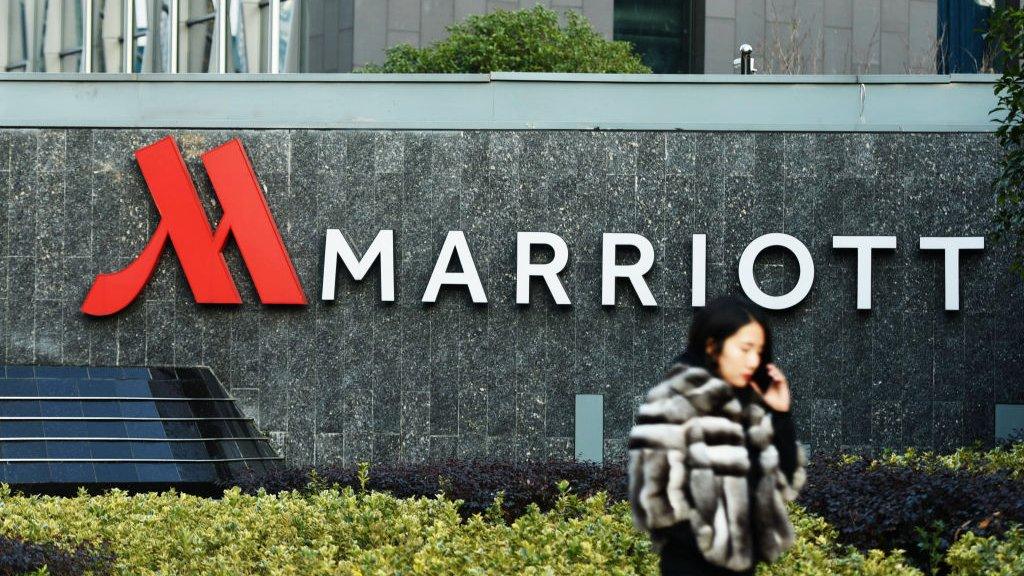Marriott Hotels 'exceptional' chief Arne Sorenson dies aged 62
- Published
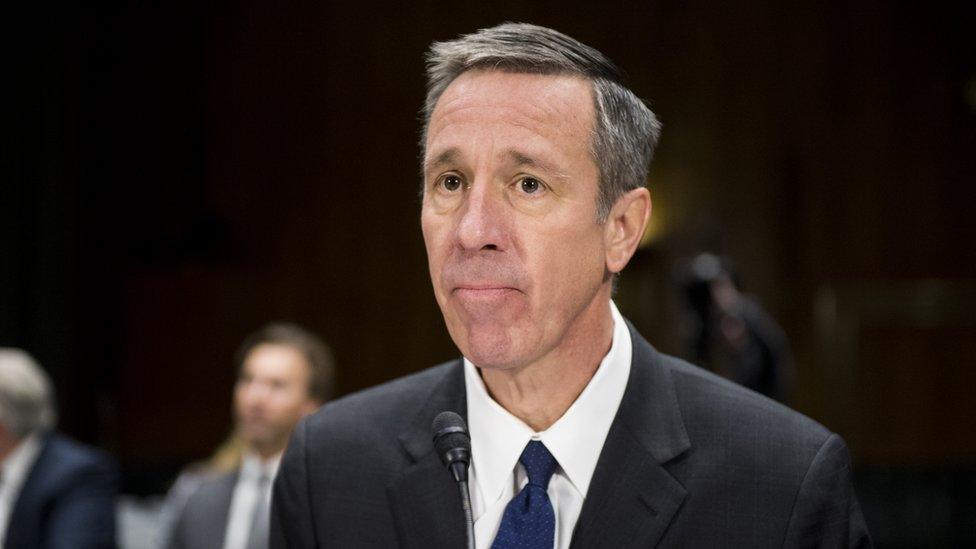
Chief executive magazine named Arne Sorenson CEO of the year in 2019
Arne Sorenson, who led Marriott International's transformation into the world's largest hotel chain, has died of cancer at the age of 62.
Mr Sorenson was the first non-family member to head the company when he became chief executive in 2012.
He steered the firm's 2016 purchase of Starwood Hotels & Resorts, which included brands such as the Westin.
Mr Sorenson, who was diagnosed with pancreatic cancer in 2019, had reduced his role earlier this month.
"Arne was an exceptional executive - but more than that, he was an exceptional human being," Marriott executive chairman JW Marriott Jr said in a statement announcing the death.
"Arne loved every aspect of this business and relished time spent touring our hotels and meeting associates around the world. He had an uncanny ability to anticipate where the hospitality industry was headed and position Marriott for growth."
Marriott, which has more than 7,500 properties around the world and owns 30 brands, said it planned to appoint a new chief executive in the next two weeks.
'Bravura performance'
Born in Japan, Mr Sorenson was the son and grandson of Lutheran missionaries.
He trained as a lawyer and worked in Washington, DC, where he started to represent Marriott in 1992 before being recruited to work in-house for the company a few years later.
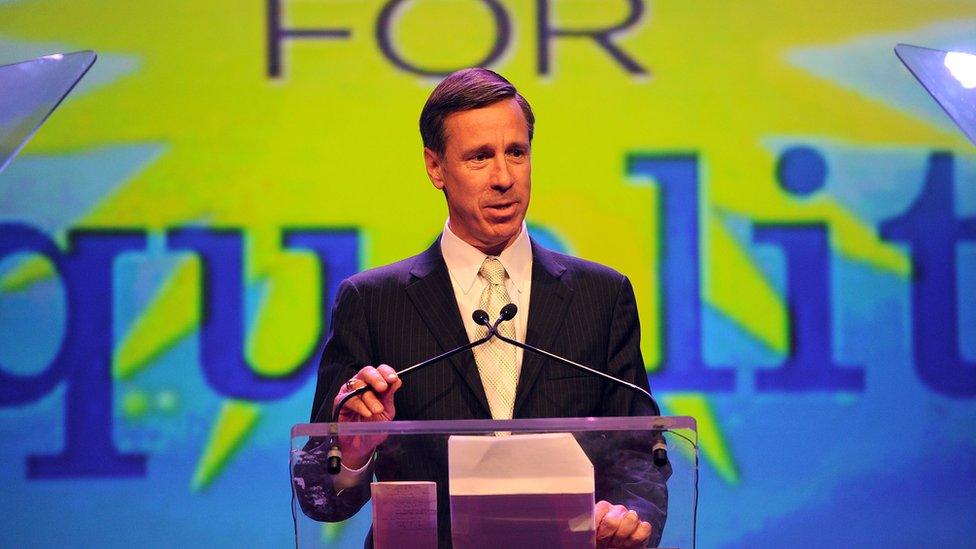
Arne Sorenson was known for speaking out in support of LGBT rights
While serving as Marriott chief, Mr Sorenson faced union-led protests from workers seeking higher wages and helped the firm deal with the fallout after it discovered a hack that had exposed data of more than 300 million Starwood customers between 2014 and 2018.
The breach ultimately resulted in an £18.4m fine in the UK, down from the nearly £100m first announced.
He was also known for speaking out in support of LGBTQ rights and against the travel ban imposed by former US president Donald Trump on certain majority Muslim countries.
Under his watch, the firm ran the first US-managed hotel in Cuba in decades - though the Trump administration ordered it shut last year.
In 2019, Chief Executive magazine named him CEO of the year, external, crediting him with a "bravura performance" in the face of such challenges, as well as his cancer diagnosis and the competitive threat posed by Airbnb.
Former IBM chief Ginni Rometty wrote that he had been a "role model".
"Alongside others, I will miss Arne dearly but I know that his grace & dignity will be with us forever," she wrote on Twitter.
Allow X content?
This article contains content provided by X. We ask for your permission before anything is loaded, as they may be using cookies and other technologies. You may want to read X’s cookie policy, external and privacy policy, external before accepting. To view this content choose ‘accept and continue’.
'Anything new is interesting'
During his tenure, Marriott's share price increased more than 240% - despite dropping as coronavirus devastated travel.
The firm's revenue initially fell 90%, prompting Marriott to furlough more than 100,000 workers and cut hundreds of corporate jobs. Mr Sorenson, who was married with four children, also said he would give up his salary for the year.
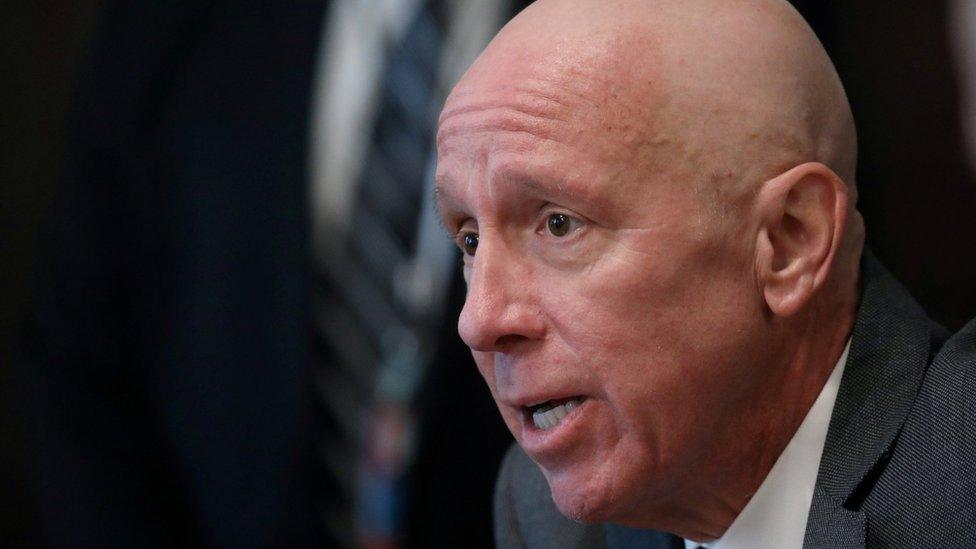
In an interview with the BBC, Mr Sorenson said the pandemic had "been fascinating, it's been devastating, it's been emotional, it's been very difficult".
"But this is a crisis unlike any I've seen in my professional career and of course anything new is interesting and you come to it with energy," he said.
"The risk of course is that we get sort of used to this, we fall into a daily rhythm where each day looks a little bit like the next," he added. "It's now a challenge for us - whether it's at Marriott or other companies... to say how do we move forward, how do we keep energy in what we're doing."
- Published30 October 2020
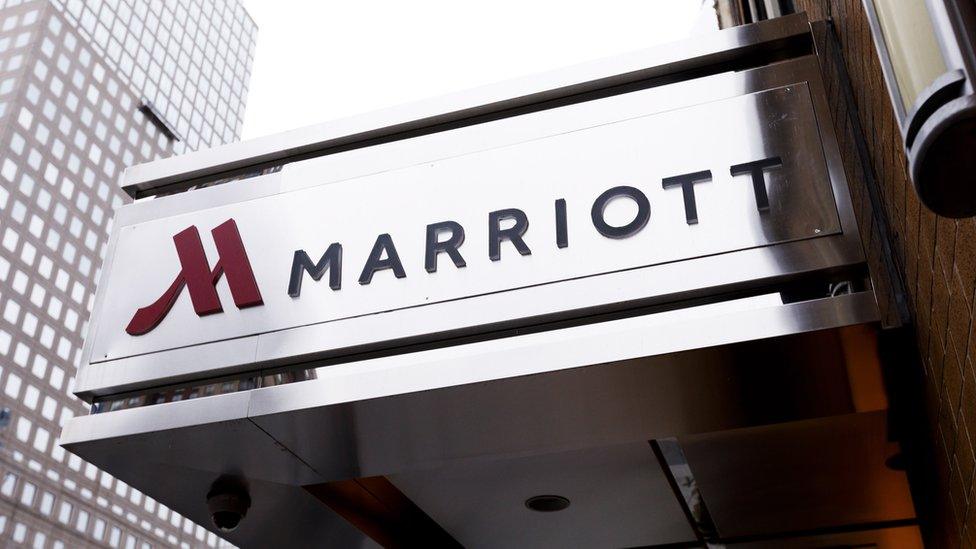
- Published2 June 2020
